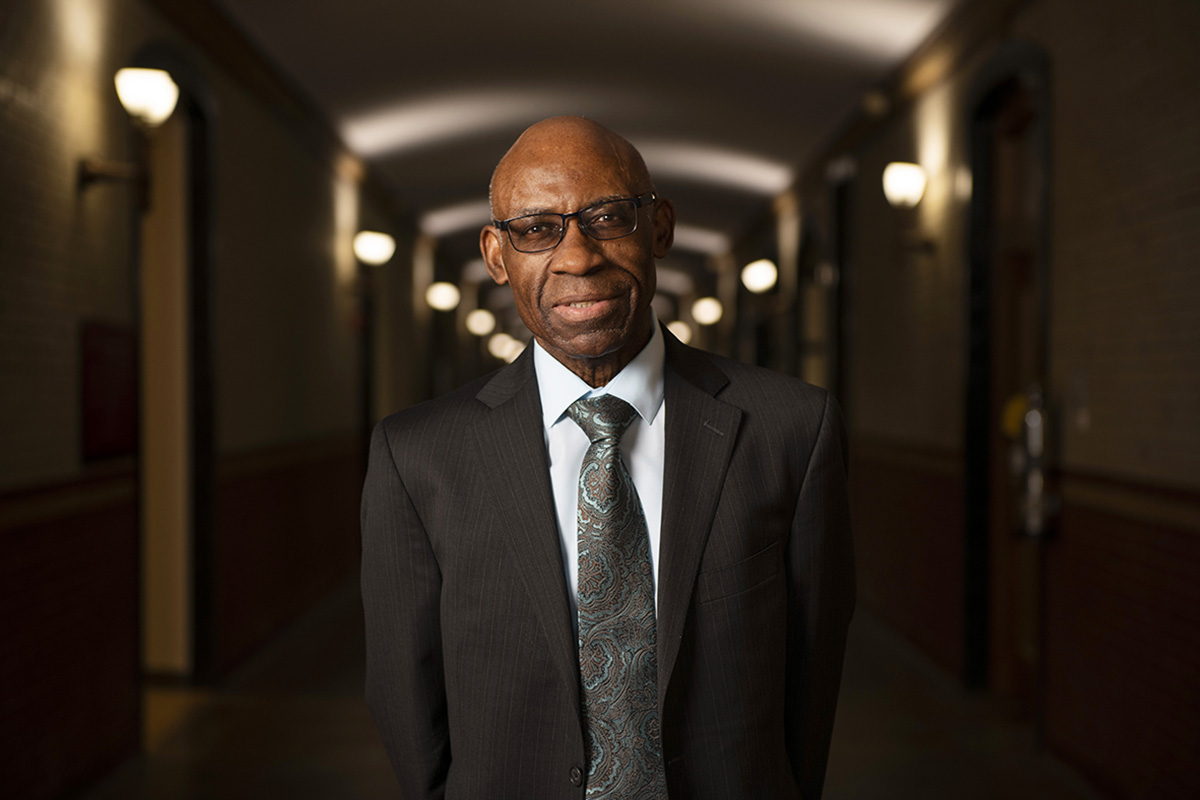
On November 15, the University Libraries and Vice Provost for Diversity, Equity, and Inclusion and Chief Diversity Officer Wanda Heading-Grant hosted "Heading to the Point: A Journey through History, Exploring the Black Urban Experience in Pittsburgh." The event featured a conversation between Heading-Grant and Giant Eagle University Professor of History and Social Justice Joe William Trotter, Jr. A recording of the event is now available.
Trotter is a leading scholar of African American history and culture, whose work has focused on the experiences of Black people in Pittsburgh – from slavery and segregation to the present day. In conversation with Heading-Grant, Trotter reflected on his profound impact on academia and discussed the current state of social justice and the Black urban experience, including his current project to explore the development of community-engaged reparations plans for the City of Pittsburgh.
A past History Department Chair in the Dietrich College of Humanities and Social Sciences, Trotter is also the director and founder of Carnegie Mellon’s Center for Africanamerican Urban Studies and the Economy (CAUSE), president of the Urban History Association, and a member of the American Academy of Arts and Sciences. His latest publication is titled “Workers on Arrival: Black Labor in the Making of America,” and he has just finished work on his next book, “Building the Black City.” He recently delivered the Presidential Address at the Urban History Association’s Conference in Pittsburgh, and was honored earlier this year with the John Lewis Award for History and Social Justice from the American Historical Association.
The University Archives is currently processing Trotter’s academic papers, which contain research papers, publications, course materials, and other materials from Trotter’s time as Mellon Bank Professor of History and later as the Giant Eagle Professor of History and Social Justice and History Department Chair. The collection also contains records related to CAUSE. Once available, this collection will make his research accessible for a new generation of scholars working to build a more equitable future for all.
